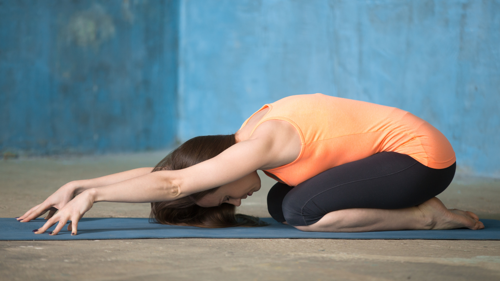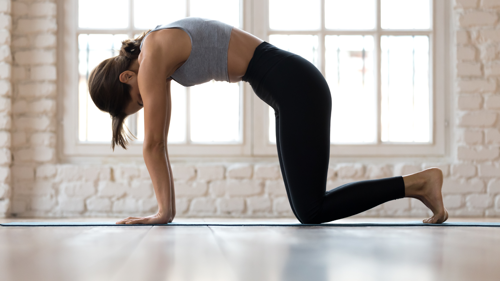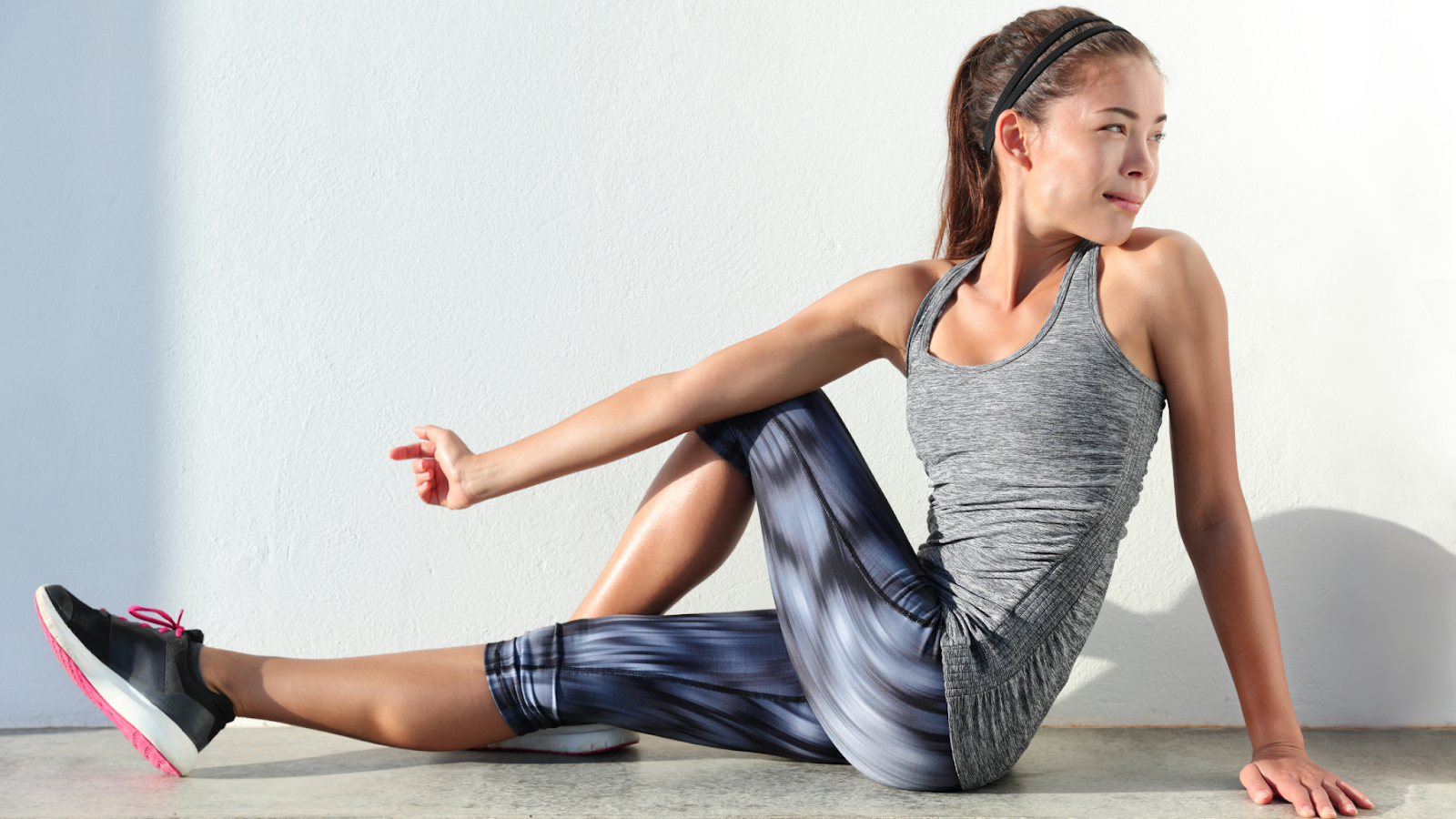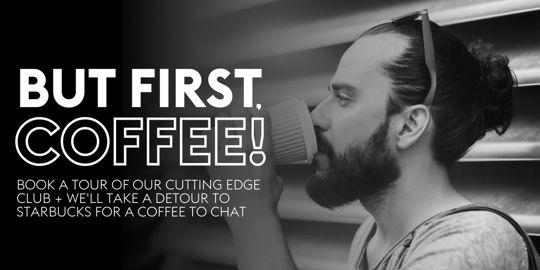A pain-free and flexible back is key for enhanced functional movement and overall health and well-being. Dynamic back stretches can help contribute to flexible and full movement of the back whilst also improving posture.
Unlike static stretches, which involve holding a position for an extended length of time, dynamic stretching of the back involves continuous movement to improve the body's flexibility and mobility. This type of stretching helps to increase the blood flow and oxygenation to the muscles and enhances joint stability and coordination. Incorporating dynamic back stretching into your daily routine can not only improve overall back health but it can reduce the risk of injuries when you’re working on the rest of your workout plan.
In this guide, we’ll explore the different types of back stretches and their benefits, to help with enhancing workout performance, alleviate back pain or just maintain a healthy spine.

Benefits of Dynamic Back Stretches
Dynamic back stretches offer a multitude of benefits. They not only enhance flexibility and mobility but also play a pivotal role in promoting relaxation and reducing stress levels. These stretches stimulate the nervous system, boosting energy levels and overall vitality. Whether you're looking to enhance athletic performance or simply improve your daily well-being, integrating these stretches into your fitness routine can be highly beneficial. Let's take a look at some of the benefits they provide:
Improved posture
-
Dynamic back stretches target the muscles in your shoulders, upper and lower back as well as your core, which are all key muscle groups for maintaining good posture. Stretching these muscles will help to improve overall spine health and will improve your natural posture over time.
Preventing injury
-
Dynamic back stretches can enhance mobility, and flexibility and activate the muscles which are key in reducing the risk of back injury. These stretches prepare the muscles and joints for movement which strengthens their ability to endure the strains of everyday movement.
Relieving back pain
-
Dynamic stretching helps to lengthen and strengthen the muscles in your back, leading to reduced discomfort by alleviating pressure on your spine and other joints.
Improved flexibility
-
The continuous movement of dynamic back stretches helps improve the elasticity of your muscles which leads to better flexibility. These stretches are beneficial for nurturing spinal health, enhancing posture, and reducing the risk of injuries during physical activities. Incorporating dynamic stretching into your exercise routine can lead to overall improved mobility and functional movement.

Dynamic Back Stretch Examples
Dynamic back stretches involve continuous and controlled movements that target the different muscles of your back, including your upper, middle and lower back. Here are some example exercises:
Cat-cow stretch
-
Begin on your hands and knees with your hands positioned under your shoulders and your knees under your hips. You’ll begin with the cow pose. As you breathe in, arch your back inwards whilst dropping your stomach towards the floor. Be sure to lift your chin and chest towards the ceiling to get the most out of the stretch. As you breathe out, you begin to go into the cat pose. This pose is where you round your back towards the ceiling, tucking your belly button up and your chin into your chest (the opposite of the cow pose). Keep alternating between these stretches in a fluid motion.
Knee twists
-
Start by lying on the floor, back against the ground facing the ceiling, with your arms extended out to each side. Bend your knees towards your chest while keeping both legs together and lower them both to one side whilst maintaining your shoulders on the floor. Return your knees back to their starting position above your chest, and repeat on the opposite side. Keep alternating this movement for as many repetitions as your desire.
Standing side stretch
-
Begin by standing straight with your feet placed a shoulder-width apart. As you breathe in, extend your arms overhead whilst interlocking your fingers with your palms facing the ceiling. As you breathe out, slowly lean to one side whilst keeping your core engaged. Hold this position for a couple of breaths then start to return to the original position. Repeat this stretch on the other side of your body and continue to alternate between each side.
Seated twist
-
Start by sitting on the floor with your legs stretched out in front of you. Bend your left knee and cross it over your right leg placing your left foot flat on the floor next to your right knee. Take your right hand and place it on the outside of your left knee and your left hand behind you for support. Begin to slowly twist your torso to the left and hold the stretch for a few breaths then repeat the stretch on the opposite side.
Incorporating these exercises into your workout routine is a simple and easy low-impact method for improving your overall bodily health. So let’s;
Stretch Out Your Back With Village Gym
With a range of cutting-edge equipment and state-of-the-art facilities, you can improve and maintain your back health at Village Gym. Village Gym has gyms located across the nation to help you achieve your fitness goals and a range of memberships to choose from that suit your needs. Sign up today and join the Village Gym community.
FAQs About Dynamic Back Stretches
Is dynamic stretching effective?
Yes, dynamic stretching is effective as it warms up and prepares the muscles, improves flexibility, reduces the risk of inquiry and improves posture.
Does stretching reduce back pain?
Yes, stretching can help alleviate back pain by relieving the tension in the muscles that support the spine and improve posture. However, it’s important to perform the stretches correctly to avoid further pain and discomfort.
How often should you stretch your back?
You should perform back stretches regularly, a few times per week. It’s important to listen to your body and adjust the frequency to avoid overstretching or further strain or injury.


